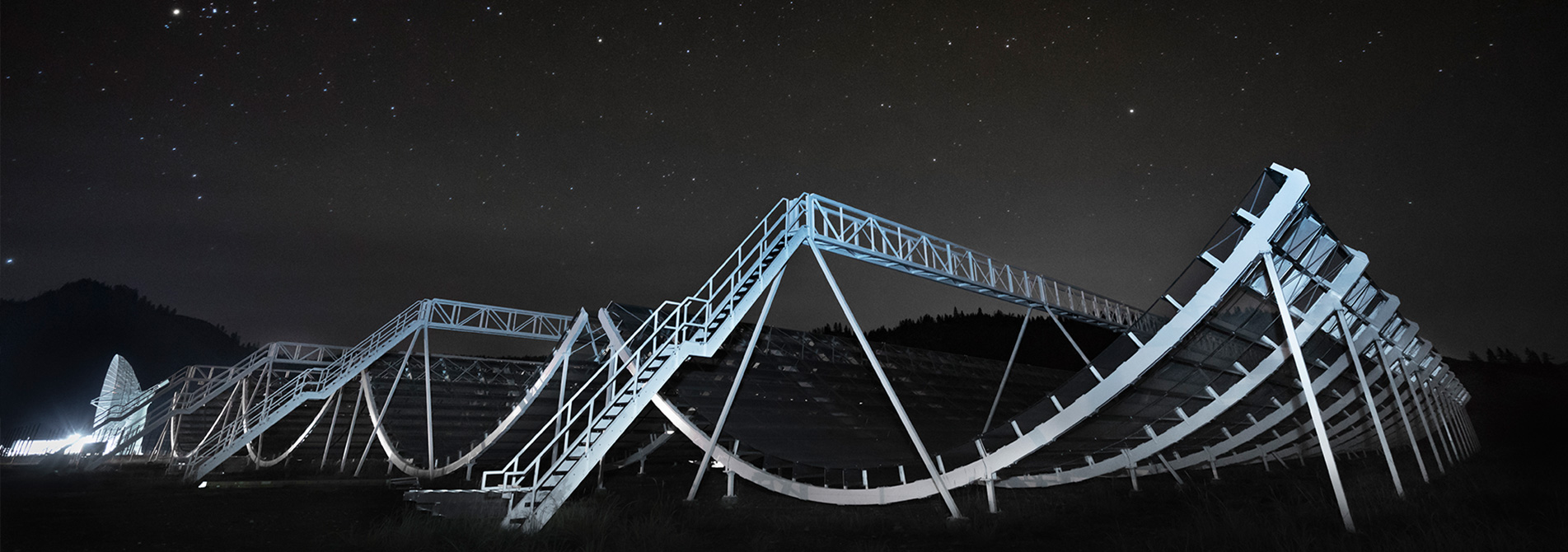The astronomy and astrophysics research area at UBC covers a wide range of topics, driven by some of the most exciting questions in modern science. Our faculty, postdoc and student researchers are seeking answers to:
- How did planets, stars and galaxies form?
- What can we learn about the early Solar System by studying small bodies?
- How do observations of proto-planetary systems tell us about the formation of our own Sun and planets?
- By studying exo-planets, can we learn about the possibilities for life elsewhere in the Universe?
- What do studies of stellar populations have to tell us about how our Milky Way galaxy was put together?
- Can we use compact objects to probe the most extreme conditions, and hence learn about extension to standard physics?
- What are the precise values of the numbers that describe our Cosmos, including the energy census, expansion rate and initial conditions?
- How can we learn more about the nature of Dark Matter and Dark Energy?
- Can new approaches to statistical analysis improve how information is extracted from astronomical data?
- What new instrumentation developments will help most with the above questions?
To study planets, stars, galaxies, the material in between, and the Universe as a whole at a variety of wavelengths, UBC astronomers and astrophysicists take full advantage of major observatories across the globe and in space. Close to home, the radio telescopes of the Dominion Radio Astrophysical Observatory (Penticton) have been regularly used by both faculty and students, and this same site is where UBC astronomers have recently built CHIME (Canadian Hydrogen Intensity Mapping Experiment), a radio telescope that will study hydrogen gas halfway across the Universe. The 3.6-metre aperture of the Canada-France-Hawaii Telescope on Mauna Kea, which supplies probably the sharpest images currently obtainable from the ground, has become a key research tool for the Department, as has the twin 8-metre Gemini Telescopes (one located in each of Hawaii and Chile), on which UBC faculty and students have been consistently successful at obtaining observing time. We remain active users of the 15-metre James Clerk Maxwell Telescope, a world-class instrument at millimetre and sub-millimetre wavelengths, located in Hawaii and UBC astronomers have also been frequent users of the Atacama Large Millimeter/Submillimeter Array in Chile. The Very Large Array in New Mexico, the 300-m dish at Arecibo, Puerto Rico, the 100-m Green Bank Telescope in West Virginia and telescopes at Parkes, Australia, and Jodrell Bank, U.K. are other radio facilities used by UBC researchers. Several ground-based cosmic microwave background experiments have had (and continue to have) significant involvement from UBC.
Many members of the faculty have been actively involved in balloon-borne and space-based projects. Large allocations of Hubble Space Telescope time have been awarded to UBC researchers, and we had significant involvement on the science teams for the WMAP, Herschel and Planck satellites. The leadership for the small optical space telescope MOST was at UBC, which included study of extrasolar planets and astero-seismology.
Members of the Department are also heavily involved in plans for future astronomical projects, including the James Webb Space Telescope, the Thirty Metre Telescope, the Square Kilometre Array and the CMB-Stage 4 experiment.
Banner image: CHIME at night, viewed from the northwest.
